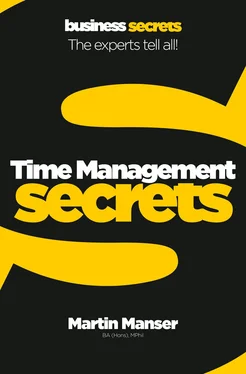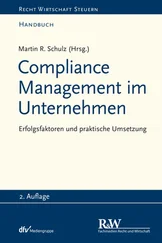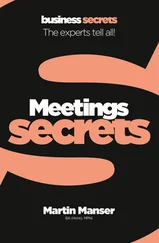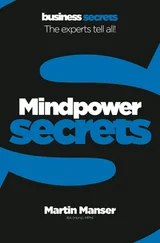The experts tell all!

Cover Page
Title Page Time Management Secrets The experts tell all!
Author’s note Author’s note Thank you to Hannah and Brian Murphy for their contributions.
Learn how to use your time effectively
Know yourself
1.1 Start with some dreams
1.2 Think about your personal goals
1.3 Know when you work best
1.4 Track how you spend your time
1.5 Get on top of stress
1.6 Prepare to change
Know your work
2.1 Clarify your job
2.2 Stop putting things off
2.3 Keep your concentration
2.4 Overcome low motivation
2.5 Sharpen up your decision-making
2.6 Be flexible about where you work
Get organized
3.1 Clear your desk
3.2 Keep a diary
3.3 Set up systems
3.4 File it
3.5 Create an action list
3.6 Set a realistic schedule
Work better
4.1 Work SMART
4.2 Spend time to save time
4.3 Be proactive, not reactive
4.4 Identify the important and the urgent
4.5 Break down a taskinto smaller steps
4.6 Get it right first time
4.7 Respond creatively to problems
4.8 Life beyond work
Work better as a team
5.1 Learn how to manage your boss
5.2 Develop a balanced team
5.3 Work together harmoniously
5.4 Delegate effectively
5.5 Learn to say “no”
5.6 Plan better meetings
5.7 Run better meetings
Communicate more effectively
6.1 Think about how you communicate
6.2 Cope with email
6.3 Speak on the phone
6.4 Make better use of your computer
6.5 Make the most of the Internet
6.6 Listen carefully
6.7 Make good notes
6.8 Read more quickly
6.9 Think about what you’re writing
6.10 Write more clearly
Take control of your time
7.1 Create blocks of time
7.2 Stay focused
7.3 Keep your paperwork under control
7.4 Use slack time well
7.5 Deal with interruptions
7.6 Combat tiredness
7.7 Put it all into practice
Jargon buster
Further reading
About the Author
Copyright
About the Publisher
Thank you to Hannah and Brian Murphy for their contributions.
Learn how to use your time effectively
There was a saying in our home as I grew up: “Even a world leader only has 24 hours in a day!” We all want to make sure we live well, that we make the best use of our time, but it is limited for each one of us. How can we make the best of our time?
We all have different personalities and have various demands made on our time. Some of us are very organized, others less so.
Over my working life, I’ve learnt a number of techniques to help make good use of time. There are two basic ideas: one is to work efficiently – to see that I have systems in place so that things go smoothly, making the best use of the resources available to me. But I have learnt to do more than that; I also want to live and work effectively – to make something of my life, to make it count, to achieve something definite, good and right.
Over the 30 years of my working life, I have had to ask myself some hard questions: what do I want out of life? What do I want to achieve? What kind of person am I? How can I develop as a person? How do I want to spend my time? How should I value my time?
So this book is more than being simply about how we spend our time. It’s about how we spend our life. Here are 50 secretsI’ve learnt, divided into seven chapters:
Know yourself. If you know what kind of person you are and what you want to get out of life, you can begin to set priorities.
Know your work. Our business life is a major part of our lives. Knowing the underlying purposes of your job will help focus your attention on seeing how well you use your time.
Get organized. Here are tips on working effectively, e.g. by keeping a diary, setting up systems and drawing up schedules.
Work better. It is important to use your time proactively, setting priorities and working well at tasks, however small they are.
Work better as a team. We don’t work individually, in isolation from one another, so it’s vital to develop good working relationships within a team with successful delegation and well-run meetings.
Communicate more effectively. How do we stop all our time being taken up by email, computers and the Internet? Face-to-face and phone communication are also vital in good time management, as are good listening, reading and writing skills.
Take control of your time. Effective use of time takes place as you learn to manage time well by remaining focused on tasks, minimizing interruptions and using slack time that may come unexpectedly.
If you follow these seven secretsyou will know how to spend your time well, how to live effectively, how to make the most of the adventure of life. I wish you all the best!
You can learn to take control of how you spend your time.
This opening chapterwill help you understand the broader issues concerning how you spend your time. Defining what you want out of life, what goals you have and when and how you work best will help you understand your overall priorities. This will then translate into the way in which you go about managing your time.
1.1 Start with some dreams
Before you start looking at how you spend your time at work, it is very useful to think about your life more widely. Do you have a clear vision for your life? What are you most passionate about? Answering these questions will help you decide on what really matters in life and so how you choose to spend your time.
Here are five ‘Ds’ to think about:
1 Drive.Think about what really fires you up. What motivates you? What is it that gives you energy and a great sense of personal fulfilment? What values in life do you hold? What do you care deeply about?
2 Dream.What have you always wanted to do? Where do you see yourself in a year’s time? What about in five years’ time? Dream some dreams!
“Focusing your life solely on making a buck shows a poverty of ambition. It asks too little of yourself. And it will leave you unfulfilled” Barack Obama, US President
3 Develop.What natural skills, abilities or talents do you have that you could develop further?
4 Discuss.Chat through the answers to some of these questions with friends. Are you being honest or completely unrealistic about yourself. Are there seeds of some possibilities that could become real?
5 Define.It will help you greatly if you can set clear and positive goals: “I’d like to…”, “In five years’ time I want to be able to…” You can then break down these goals into more immediate aims, such as steps to obtain a qualification, gain experience or learn new skills. Think about what the next steps would be in order to fulfil the goals and aims that you have set for yourself.
Focus on what motivates you, the things you would like to achieve and what personal fulfilment means to you.
1.2 Think about your personal goals
Goals can be related to your work, to your family life or to life in your community. They might even relate to playing a role on the world stage. Whatever the case, it is only once you have set yourself a goal that you can plan how to translate it into reality.
Читать дальше













